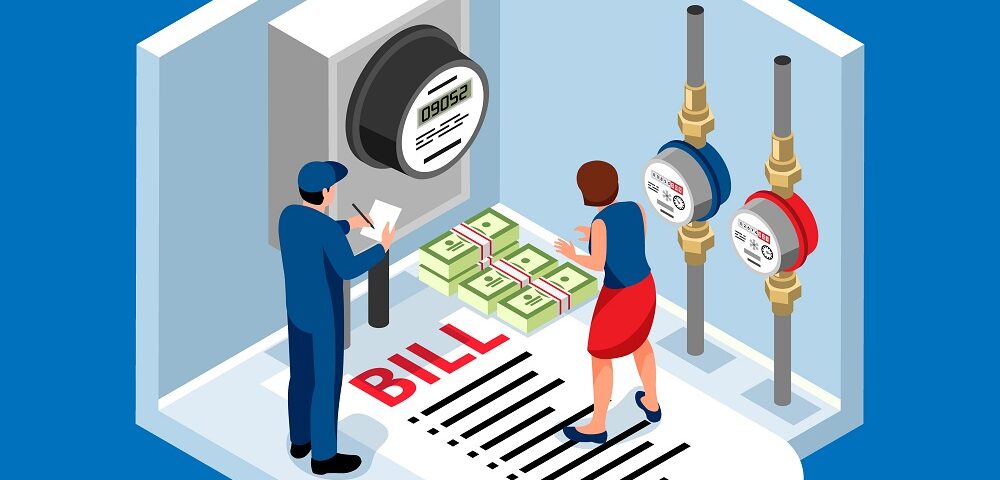- Credit Restoration Experts Nationwide

Why is Building Credit Important for Young Adults?
August 29, 2023
Small Changes, Big Results: Simple Habits That Can Drastically Improve Your Credit Score
September 22, 2023Is 850 the Magic Number? Exploring the Myth of the Perfect Credit Score

At its core, a credit score is a three-digit number that reflects an individual’s creditworthiness. It’s a numerical representation of your financial health and history, indicating to lenders how likely you are to repay borrowed money. The score is typically generated by credit bureaus—organizations that collect and maintain credit information. The most common credit scoring models are FICO® Score and VantageScore. This blog is a true example of credit protection education.
The Numerical Range: Understanding Scores
Credit scores usually fall within a range of 300 to 850, with higher numbers indicating better creditworthiness. However, the specific range and criteria may vary depending on the scoring model used. Here’s a general breakdown of the score ranges:
- 300 – 579: Poor
- 580 – 669: Fair
- 670 – 739: Good
- 740 – 799: Very Good
- 800 – 850: Excellent
The Components of a Credit Score
Behind this numerical value are several components that contribute to its calculation. Understanding these components is essential to comprehending the factors influencing your credit score.
- Payment History: This is a record of your past payments on credit accounts, including credit cards, mortgages, and loans. Late payments, defaults, and bankruptcies can negatively impact your score.
- Credit Utilization: This refers to the percentage of your available credit that you’re currently using. A lower utilization rate is generally better for your credit score.
- Length of Credit History: The longer you’ve had credit accounts open, the better. This component considers the average age of your accounts and the age of your oldest account.
- Types of Credit: Having a mix of credit types, such as credit cards, installment loans, and mortgages, can positively affect your score.
- New Credit: Opening multiple new credit accounts within a short period can lower your score, as it might indicate higher risk behavior.
Why Does Your Credit Score Matter?
Your credit score serves as a crucial factor for lenders when assessing the risk of lending to you. A high credit score signals responsible financial behavior, increasing your chances of approval for loans and credit cards at favorable terms. Conversely, a lower credit score might result in higher interest rates or even denial of credit.
Beyond loans, your credit score can impact various aspects of life, such as renting an apartment, getting a mobile phone contract, or even qualifying for certain jobs. Many landlords, employers, and utility providers use credit scores as a measure of financial responsibility.
If your credit score is not where you want it to be, fear not—there are steps you can take to improve it. Start by checking your credit report for errors and disputing any inaccuracies. Paying bills on time, reducing credit card balances, and avoiding opening too many new accounts can gradually boost your score.
850: The Holy Grail of Credit Scores? Debunking the Myth
Few numbers hold as much fascination as the elusive 850—the highest possible credit score achievable in most scoring models. It’s often portrayed as the pinnacle of creditworthiness, a golden ticket to the best interest rates, loans, and financial opportunities. But is an 850 credit score truly the holy grail it’s made out to be, or is it a myth that needs debunking? Let’s find out!
The idea of a perfect credit score—850—is undoubtedly alluring. It suggests flawless credit management, impeccable financial responsibility, and an ideal borrower profile. The assumption is that with an 850 credit score, financial doors swing wide open, offering the best terms, interest rates, and credit limits. This perception has fueled the belief that an 850 credit score is the ultimate goal for anyone seeking optimal financial opportunities.
While the notion of a perfect 850 credit score is captivating, the truth is that it’s not a practical or necessary target for most individuals. Scoring models are designed to evaluate credit risk, and the highest ranges—such as 800 and above—already place borrowers in the category of excellent creditworthiness. Achieving an 850 score requires not only responsible credit behavior but also meeting specific criteria that may not significantly impact an individual’s financial standing.
Moreover, lenders generally place borrowers within the same interest rate tier if their scores fall within a certain range. For instance, someone with a credit score of 800 might receive the same favorable terms as someone with an 850 score. This means that the benefits of inching from, say, 810 to 850 might be negligible in terms of actual financial opportunities.
The Factors Beyond the Number: Comprehensive Credit Health
Credit scores are influenced by a combination of factors that reflect an individual’s credit history and behavior. These factors typically include payment history, credit utilization, length of credit history, types of credit, and recent credit inquiries. While these components contribute to the credit score, they also shed light on an individual’s overall financial health.
Focusing solely on achieving an 850 credit score can divert attention from other crucial financial aspects. For example, maintaining a healthy debt-to-income ratio, having an emergency fund, and saving for future goals are equally—if not more—important for long-term financial well-being. A high credit score doesn’t necessarily translate to holistic financial success.
Rather than fixating on an 850 credit score, individuals can focus on building and maintaining an excellent credit profile. This involves responsible credit management, timely bill payments, and a balanced approach to credit utilization. It also means regularly reviewing credit reports for errors and addressing them promptly.
Additionally, diversifying credit types, such as having a mix of credit cards and installment loans, can contribute positively to credit health. Consistently monitoring credit utilization, which is the ratio of credit used to credit available, is also important.
Factors Shaping Your Credit Score: Beyond the Numbers
When it comes to understanding your credit score, it’s easy to get caught up in the numerical value itself. However, the reality is that your credit score isn’t simply a static number; it’s a dynamic reflection of your financial behavior and history. To truly comprehend your credit score and work towards improving it, it’s crucial to delve deeper into the factors that shape it. Let’s explore the key factors that shape your credit score:
- Payment History (35%): Timely payments build a strong foundation. Late payments, defaults, or accounts in collections lower your score.
- Credit Utilization (30%): Balancing your credit card balances with limits is vital. Lower ratios show responsible credit management.
- Length of Credit History (15%): A longer credit history is favorable. It considers your oldest account, average account age, and account type duration.
- Credit Mix (10%): Diverse credit types demonstrate management skills. A varied mix, from cards to loans, can boost your score.
- New Credit Inquiries (10%): Applying for credit generates inquiries. Numerous inquiries in a short time may impact your score.
- Negative Information (Varies): Bankruptcies, liens, and judgments harm your score. Address these promptly to minimize their effect.
Think of your credit score as a puzzle made up of how you handle money. It’s not just a single number; it tells a story about how you deal with finances. To keep your score healthy, there are some important things to do. You must know that credit scores can change over time based on what you do with your money. Whether you’re working towards a credit goal or just trying to be financially secure, these steps can help you understand and improve your credit score. It’s like a map that guides you through the world of credit, and by learning these things, you’ll be ready to make smart money choices and keep your credit score going up.
Achieving Good Credit: Steps for a Strong Financial Profile
Having a healthy credit profile is like having a strong foundation for your financial house. It’s important because it can open doors to opportunities like getting loans or renting an apartment. Let’s explore some simple strategies that can help you build a strong credit profile and keep it in good shape.
- Pay Your Bills on Time: One of the most important things for a good credit profile is paying your bills on time. Whether it’s your credit card bill, rent, or any other payment, being punctual shows that you’re responsible.
- Use Credit Wisely: Using credit cards can be convenient, but it’s important not to go overboard. Try to use only a portion of your credit limit and avoid maxing out your cards. This shows that you can manage your credit responsibly.
- Check Your Credit Report: Your credit report is like a report card for your financial behavior. You can get a free copy each year from the major credit bureaus. Look for any errors or mistakes and report them to fix them.
- Avoid Opening Too Many Accounts: While having credit is good, opening too many accounts in a short time can actually hurt your credit score. Be mindful of the accounts you open and their impact on your overall profile.
- Build a Mix of Credit Types: Having a mix of different types of credit, like credit cards and loans, can actually be good for your profile. It shows that you can handle different financial responsibilities.
- Keep Older Accounts Open: The length of your credit history matters. So, even if you’ve paid off an old credit card, it might be a good idea to keep the account open to show a longer history.
- Communicate with Creditors: If you’re facing financial difficulties and can’t make payments on time, it’s better to communicate with your creditors. They might be able to offer solutions to help you avoid damaging your credit.
- Be Patient: Building a strong credit profile takes time. Be patient and consistent with your responsible financial habits. Over time, you’ll see a positive impact on your credit score.
Your credit score is like a reflection of your financial behavior. By following these simple strategies and taking help from one of the top credit repair companies, you can work towards a strong credit profile that opens up doors to better financial opportunities. It’s like taking care of your financial health, and just like with your physical health, small steps can lead to big rewards.

